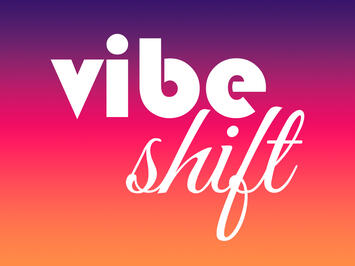
I just wanted to put up a short post to consolidate some recent thoughts I’ve shared under the combined heading of the “vibe shift.”
I do think something changed in the environment in 2022. A lot of this is under the heading of what I called the return to normal. My recent newsletter about not playing the heel is also related to this.
We went through a six year period of so of elevated stress and conflict. This perhaps could be dated to Donald Trump’s trip down the escalator to announce his candidacy for President that upended the political landscape of America. After a crazy campaign, he won. And the media and institutions of society worked to ensure he would never be treated like a normal president, that he should be denied legitimacy for all four years in office if they couldn’t force him out early. This kept thing at a perpetual fever pitch.
Then there was the pandemic and essentially a two year lockdown of the country. The pandemic fever pitch didn’t end until the Russian invasion of Ukraine provided an opportunity for the American leadership class to close up shop on it.
It’s very difficult to sustain a fever pitch for long periods of time. It’s unhealthy if you do. With Trump out of office, and Covid civically downgraded, this opened the door for the longed for return to normal.
Now, things are not normal. While populism always fades, Trump’s Presidency disrupted politics in the US and the Republican Party in ways that are not likely to revert to the status quo ante. He shifted the Overton Window there significantly.
Also, the fallout from the pandemic is not going away. Even if there’s a slow reversion towards the pre-pandemic pattern, there seems to be a widespread belief that some changes are permanent. Remote work is here to stay, which puts a big question mark over the future of downtowns. The exodus from public schools doesn’t seem likely to reverse. There was a spike in geographic sorting that I believe will continue. This included a shift towards the suburbs, and more explicit consideration of politics in people choosing a place to live. All of these will have big consequences going forward even if the future is unknown at this time.
There’s also the slow decline and decay of Baby Boomer-centric institutions, along with a slow generational turnover that is now actually starting to happen. Observers I talked to in the evangelical world, for example, suggest that most organizations are doubling down on what they’ve been doing, even though it’s obvious the old patterns are not going to work going forward.
I believe we’ve entered a sort of liminal period. The old is passing away but we do not yet know what the new is going to be. That shift may not be revolutionary but rather evolutionary, but I do believe it’s coming.
Read the rest of this piece on Aaron M. Renn on Substack.
Aaron M. Renn is an opinion-leading urban analyst, consultant, speaker and writer on a mission to help America's cities and people thrive and find real success in the 21st century. He focuses on urban, economic development and infrastructure policy in the greater American Midwest. He also regularly contributes to and is cited by national and global media outlets, and his work has appeared in many publications, including the The Guardian, The New York Times and The Washington Post.












